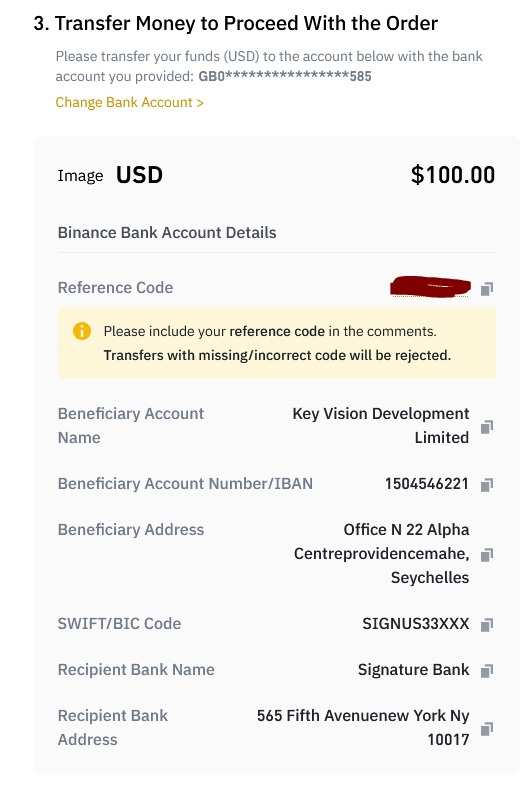A Walled Garden Full of Snakes: The Signet Client List Revealed
We have obtained a November 2021 copy of Signature Bank's Signet clients. We have some questions.
Note: We remain short Signature Bank. What follows is not investment advice and for informational purposes only.
We recently published an article discussing potential regulatory issues faced by Signature Bank (SBNY), a New York-based commercial bank with close ties to the cryptocurrency industry. In this piece, we discussed how Signature offers a private blockchain solution called “Signet,” which allows the bank’s customers to make intrabank transfers to other Signet clients instantaneously, for any amount, at any time. With hundreds of billions of dollars worth of transfers over its history, Signet has become one of the most attractive offerings for Signature’s crypto clients.
To protect Signet from being used by bad actors, Signature implemented what their chairman Mr. Shay called a “walled garden" approach:
SHAY: We built what I like to call a “walled garden.” If you pass through this walled garden and you’re a miner, you’re an exchange, you’re a custodian… if you get through our vetting process— we have a strenuous KYC/AML process because we are an American onshore bank— then you’re going to get into this walled, gated community and you’re going to get access to Signet. And Signet is a blockchain-enabled tool that you can use with other people who are part of this community so you know they have been vetted…
We suggested that this might be a problem if Signature’s procedures failed to identify bad actors and pointed to some public evidence that suggested Signature had allowed bad actors to use their platform. Chief among them was FTX, which had several accounts at Signature Bank. However, we did not have a list of Signet clients to determine how bad things might actually be.
Recently, we obtained an official list of some of Signet’s clients from November 2021. This list was distributed as a marketing effort and includes an email at the bottom for interested parties to contact. In the interest of advancing public awareness, we are publishing the entire document (with email redacted). We have included red boxes around certain entities that we think might merit further attention:
We note that there are several problematic entities among this list. In addition to FTX, here are just a few to mull over.
Binance
Signature lists the Binance exchange as one of their Signet clients. This is concerning as Binance has a long history of difficulties with obtaining banking relationships in the United States. In fact, even Silvergate Bank ended up dropping Binance as a client in 2021. We have recently covered some of the problems with Binance in detail:
We were able to independently confirm that Binance, as of 1/16/23, was still listing Signet as an option for transferring funds to their exchange:
We were separately able to confirm that, as of 1/16/23, Signature Bank is still enabling individuals to transfer US dollars to Binance via Key Vision Development Limited, a Seychelles shell corporation:
Genesis Block OTC
Genesis Block OTC was an over-the-counter crypto exchange operating in Hong Kong. As we previously discussed, Genesis Block was well-known to exchange cash for crypto. According to a bombshell report by the Financial Times:
At the time, Genesis Block was drawing a crowd with its unusual business model: in a world dominated by the web, it was exchanging crypto for physical cash. “People were literally lining up around the corner with bags of cash at Genesis Block,” a former employee said. “Sometimes they shut the door saying they were out of bitcoin.”
We were able to show using blockchain analysis that Genesis Block was little more than a front company for Alameda Research, as crypto transfers to Genesis Block ended up going immediately to Alameda’s wallets:
Genesis Block shut its doors shortly after the collapse of FTX. And guess what? They were banking at Signature Bank too. We wonder if some of those bags of cash made it onto the Signet blockchain…
Nexo Services OU
Another one of the usual suspects at Dirty Bubble Media, Nexo is a crypto lending company that recently exited the United States market due to regulatory concerns. Their offices were raided a few days ago as part of an international investigation into money laudering and sanctions violations. Signature lists “Nexo Services OU” as a Signet client. We can confirm this is a Nexo-affiliated corporation as it was named as part of a recent civil suit against the company.
Huobi
Huobi is an international cryptocurrency exchange. It is known to be controlled by a group of investors led by Justin Sun, a notorious figure in the cryptocurrency world. We have not bothered to write about Mr. Sun, because Christopher Harland-Dunaway did the job last year with a detailed profile in The Verge. In this piece, Mr. Sun is noted to collect bank accounts like baseball cards, to regularly make sudden exits from various countries when under legal pressure, and to have an, um, dismissive attitude towards basic compliance practices:
Everywhere else at Poloniex, token listing requirement approvals slackened — a return to “YOLO Polo,” as one employee described it. Sun also began impatiently bulldozing Poloniex’s KYC rules, which were slowing Poloniex’s user adoption in China to a crawl. A former employee said the logjam enraged Sun. “Fake the KYC!” he screamed at one meeting. “Fake it!”
Huobi is listed as having multiple accounts with the Signet platform.
Genesis Trading 3AC, and FTX
Genesis Trading and its parent company DCG have recently been in the news due to financial problems. These problems appear to stem back to a disastrous relationship with the crypto hedge fund Three Arrows Capital (3AC), which collapsed in June after a number of bad bets on crypto markets. According to analysis by the excellent DataFinnovation, it appeared that Genesis lent 3AC Bitcoin to deposit into DCG’s other crypto product, the Grayscale Bitcoin Trust:
It looks like DCG and 3AC were engaged in some kind of scheme to extract value from the GBTC premium. This provided massive leverage for 3AC which they encashed and used to fund a wide range of things. It also generated a lot of short-term profits for DCG via fees. But 3AC was wildly leveraged and they appear to have gone insolvent over the Terra-Luna weekend. The epic losses from this blowup are only starting to be felt. And GBTC may be the center of bigger trouble.
This was confirmed publicly by one of the founders of 3AC, Zhu Su:

Su has also alleged that Genesis and FTX colluded to manipulate crypto markets for mutual gain:

Genesis, 3AC, FTX, and Alameda are all listed as Signet customers. This means any dollar transfers between these entities are captured on the Signet blockchain in perpetuity. Hint hint.
If we could issue subpoenas…
… the first place we would be looking would be the Signet and SEN blockchains. These two platforms have handled over $1 trillion of transactions between many of the biggest, and most questionable, entities in the cryptocurrency industry. The answers are there, for anyone who can go looking.
Alas, we must be satisfied with the bits and pieces we can see… and wait.










“This means any dollar transfers between these entities are captured on the Signet blockchain in perpetuity. Hint hint.”... do you really believe their “private blockchain” is immutable? 😉
More great reporting. I bet the crypto coin valuations that are holding up are being supported by a bunch of wash trading among a relatively limited number of counter parties.